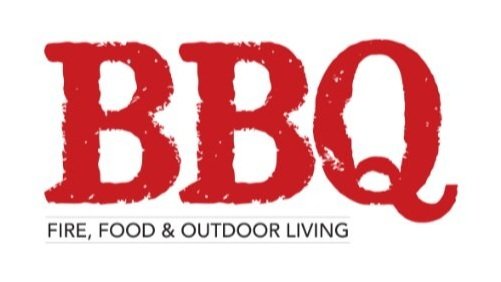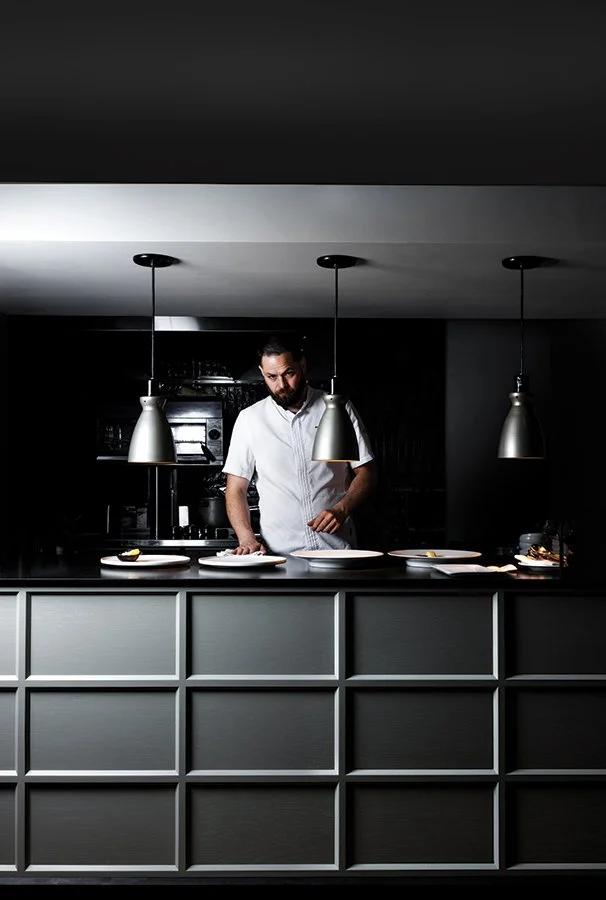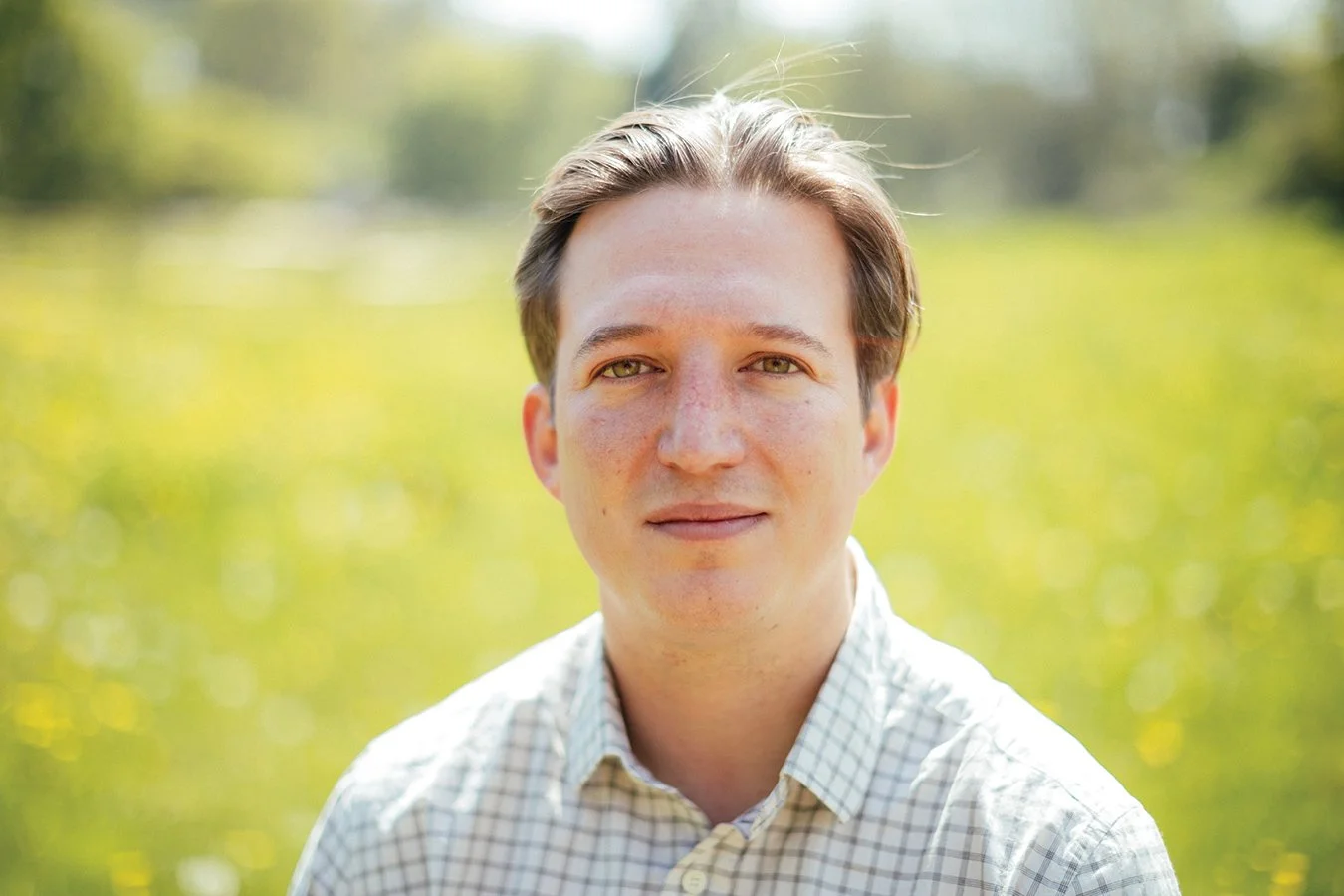
Farm to fire to fork
Farming is facing an existential threat and with it the food on our tables and on our barbecues. RUPERT BATES talks to chefs, farmers and butchers about their fears for the future of agriculture, and their love for fire cooking
Cattle forged from salvaged steel, recycled plough metal, and wood, were sculptures that stood out amid the floral and outdoor living stands at Chelsea Flower Show.
Scottish blacksmith Kev Paxton of ArtFe, a lover of food and nature, believes his steely beasts, meticulously crafted, could decorate any BBQ area, symbolising the field-to-fork ethos. Equally, they could stand as silent memorials, should those seeking to destroy British farming and meat production win the war. And it is a war, against traditional agriculture, using the fake bullets of climate change mitigation to justify reducing meat production and consumption.
From a smiddy near Edinburgh to a pub in Northern Ireland. Alex Greene knows all about cattle. His family farm has de terra shorthorns and the journey from field to fork is the shortest, with the farm in the Mourne countryside supplying the meat and vegetables for The Bucks Head in the village of Dundrum, about 35 miles from Belfast.
Greene is arguably Northern Ireland’s finest chef, and The Bucks Head is his new restaurant in partnership with Bronagh McCormack, who is also from a farming background, with an outdoor dining area planned. As a chef, Greene is brilliant; as a farmer, he is furious. While a lot of the smaller farms in Northern Ireland might be currently under the new inheritance tax threshold introduced by the Labour government, he sees the tax as ‘a massive stake to the heart’ of agricultural communities.
“There is now no incentive for the next generation to take over or grow the farm. You farm to pass it on down the generations. You have the land but not the money. I fail to see any method in the madness. It makes no economic sense, and the countryside is nothing without farming,” says Greene, who in both 2019 and 2020 cooked two courses in the BBC’s Great British Menu banquet.
Greene enjoys cooking with fire over the restaurant’s Josper grills and also runs Fish & Farm, a retail business in the seaside town of Newcastle, County Down. “At home I love a fry-up for breakfast on my Kamado Joe. Light the fire first thing and then on with the bacon, sausages and eggs. The flavour hit you get is just different on a barbecue.”
Next, to England and a farm in the East Midlands. “It’s never been a more important time to support British food and produce. As I fire up the BBQ, loading it with all my favourite meats, it makes me think about the food I’m cooking and where it has come from,” says Ben Aveling, a Northamptonshire farmer and a chef who ran his own restaurant.
Aveling farms at Radmore Farm near Towcester, where he also has a butchery and farm shop, selling his own meats – goat, pork, lamb and beef.
“Never in human history have we had access to food like we do now. The ability to walk into a shop, fill a trolley with all we need, pay and walk out is incredible; something our ancestors wouldn’t believe even 100 years ago. It could be a supermarket, greengrocers or butchers, but the issue remains; we have a food disconnection problem,” says Aveling, who sits on the No Famers No Food campaign steering group.
“We have never been further away from the story and provenance of our food. Once upon a time we would have only had, within reason, locally sourced food. This created local economies, sustaining those communities with good food. It’s not right that we have a legal obligation in the UK as farmers to produce food to certain standards, yet we import from countries that don’t. Large corporations and supermarkets rely on this food disconnection to be able to quietly sell us products that cost less to buy and make more money.”
Aveling says government policies, including inheritance tax on farms, and the withdrawal of the Sustainable Farming Incentive scheme, means the countryside is under threat and with it our food security.
“We must use local farm shops and butchers where we can. We have some of the highest food standards and highest quality food in the world, amid some of the world’s most beautiful countryside. We need to protect this at all costs and ensure it’s still here for future generations. It’s as simple as that.”
Richard Turner describes himself as a ‘BBQ cook, butcher, restaurateur, author, entrepreneur, one-time pig farmer, itinerant ne’er do well and vagabond’. Whatever the moniker, the chef director of Bodean’s knows his meat.
“Our farmers are really up against it. Between supermarket pressure on prices, lack of government support and a curmudgeonly Mother Nature, they really are struggling. If it continues, less and less young people will be attracted to farming and we will have to import more inferior produce,” says Turner, who also has his own butchers, Turner & George.
While accepting the important of buying local and buying quality, Turner says there are many people more concerned with simply affording the weekly food shop.
“But if you can afford a shop driven by flavour, health and environmental concerns, then locavore is the way to go.”
When it comes to BBQ, Turner’s go-to meat is ‘the mighty hog’ but don’t forget the wonders of vegetables on the grills.
Harry Radford is managing director of Pipers Farm in Cullompton, Devon. For him, it is all about respect – for the land, the animals and the people. “We partner with brilliant farmers across the south-west and beyond, paying them a fair price to farm the old-fashioned way: naturally, slowly, and with care. Our beef is 100% grass-fed, our poultry free-range, and every cut butchered by hand.”
Radford says customers are happy to pay a premium, not just for the taste and nutrition, but because they know they are supporting local farmers and rural communities.
“We’re not just selling meat; we’re keeping traditional skills alive, building resilience into our food systems, and telling the stories of our farming communities – from field to flame,” says Radford.
He says the inheritance tax changes, rising costs and unpredictable markets mean it is an exceptionally tough time for family farms.
“But I truly believe the British public has never cared more about what they eat and where it comes from. People want to support local farmers, and they value the story and the hard work behind every bite. That support is what keeps rural communities alive and kicking. At Pipers Farm, every steak, sausage, and shoulder of lamb has a story: the farm, the farmer, the pasture, the care.”
Radford loves to cook over fire. “A butterflied leg of lamb on the BBQ, served with a punchy salsa verde and some seasonal new potatoes. I love the new energy in British barbecuing right now, with global flavours, rubs, and smoking techniques making things even more exciting. But, for me, the best is still the simplest – just flames, good meat, a sprinkle of salt. That’s what it’s all about – letting great ingredients shine.”
Ben Tindale, a talented fire cook, is butchery manager at G.Shearer & Son in south Lincolnshire and hears and sees first-hand the concerns and fears of farming communities and food businesses, with the government’s actions feeling like ‘a targeted attack on our food security’.
“It is through our established network of local farmers and suppliers that we procure and butcher produce of the highest quality and provenance, with consumers becoming more interested in the food’s origins,” says Tindale, captain of Team GB at this year’s World Butchers’ Challenge in Paris.
“Through our close relationships with farmers, we can share this knowledge and the hard work and passion that goes into rearing animals.”
Online butcher Farmison & Co, based in North Yorkshire, is all about selling quality meat, from British native breeds, slow-reared and free range, with provenance at its core.
“Our crusade for taste is relentless. Where do people love cooking this sort of meat? On a barbecue – the alchemy between fire, fat and meat that makes something irresistible, and the better the quality, the tastier the meat,” says Andrew Cavanna, commercial director.
But Cavanna also hears about the current plight of British farming. “A farm isn’t just a business, it’s a way of life and everyone knows that while some farmers may be asset-rich, most are cash-poor. Farmers are guardians of the land, preserving it for future generations. What’s happened since Brexit, the cost-of-living crisis and in the current political landscape is choking British farming,” says Cavanna.
“Costs have spiralled, subsidies axed, taxes imposed, and yet food prices have reflected none of this and supermarkets are primarily choosing cheap imports over supporting our own food systems. Our farmers wholly support their local economies through labour, services and commerce. The decline of farming will bring about the decline of the countryside and ultimately agricultural destruction. Farming is in real trouble.”
Jeff Baker is development chef at Farmison & Co and travelling opened his eyes to live-fire cooking. His favourite food on the barbecue would be a chuck roast, smoked low and slow on a combination of lumpwood charcoal and mild dried logs, applying a dry rub and resting in smoky flavoured butter, as an alternative to brisket.
“Farmison gives me access to the best meat in the world and I’m constantly working on interesting new dishes for our customers to try on the barbecue,” says Baker.
Butcher Elsie Yardley, 30, has already worked in the meat industry for 16 years starting as a Saturday girl and going onto represent Team GB at the World Butchers’ Challenge. She manages butchers Ansell & Sons in Maldon, Essex, and the local abattoir supplier, C Humphreys & Sons, is her partner William Humphreys’ family business.
“That connection between our farms, suppliers and customers is very personal and those relationships so important,” says Yardley, who lives on the family farm.
“I have noticed first-hand the struggles farmers and rural communities are under. Being a farmer is never a job; it’s a lifestyle and living on a farm with livestock there is no break. It’s really sad to see a lot of farms around us selling up due to difficult times.”
Yardley is passionate about buying local where possible, advocating eating less, but better-quality meat, respecting the nature and nurture that has gone into it and learning to use the whole animal to derive full value.
The fire is another connection between farm and fork for Yardley, cooking on the BBQ all year round. “I, of course, love a good côte de boeuf, but I’ve been really getting into cooking offal on the barbecue – hearts, sweetbreads and, my favourite, lamb liver, seasoned well with salt, pepper and paprika on flatbreads, with a fresh coriander salad and tzatziki.”
Jacqui Mock started a cookery school at Hampton Manor in Solihull in the West Midlands, drawing her produce and inspiration from the estate. Growing up on a dairy farm in north Devon, Mock now lives in Northamptonshire, continuing her culinary journey of cooking, preserving and foraging.
“Cooking over fire was a common theme in most restaurants I’ve worked in. Mini barbecues were an important part of the menu, finishing glazed up lobster tails over hot coals and smoked offal with roasted meats used on sharing plates for Sunday roasts,” says Mock.
“I love the challenge of cooking over flame. Possibilities are endless – from smoky Basque cheesecakes to grilled fruits drizzled with honey, to delicate fillets of fish, and vegetables wrapped up and roasted in the burning embers.”
Mock says her family have embraced more sustainable methods of farming, with a focus on soil health and biodiversity.
“Idealistic as this is, it would not be possible without subsidies. Generational farming is now a real concern following the inheritance tax changes.”
Mock says self-sufficiency and resilience are key in protecting against global supply chain disruptions, as well as maintaining jobs and supporting rural communities.
“Knowing how and where your food is grown gives intrinsic value to everything put on the plate, with very little wasted. Eating seasonally boasts the best flavour, freshness and the highest nutritional content. It encourages resourcefulness, creative cooking and more mindful eating,” says Mock.
“Understanding the journey and working closely with our growers, farmers, butchers, millers and brewers, means relationships are created out of trust and transparency, building a community and a network that is invaluable.”
In the last issue, I wrote about the existential threat to farming – a land grab, led by pernicious inheritance tax changes and the withdrawal of the Sustainable Farming Incentive scheme – and with it the food that goes on our table, and often via the outdoor fire of the barbecue. And, let’s not forget the British fishing industry, which is also in this government’s crosshairs, a deliberate and dangerous policy to restrict the ability to produce our own food.
I called for BBQ businesses, amateur outdoor cooks and professional fire chefs to mobilise support for farmers and rural communities. They have answered, and there is an almighty battle ahead.














